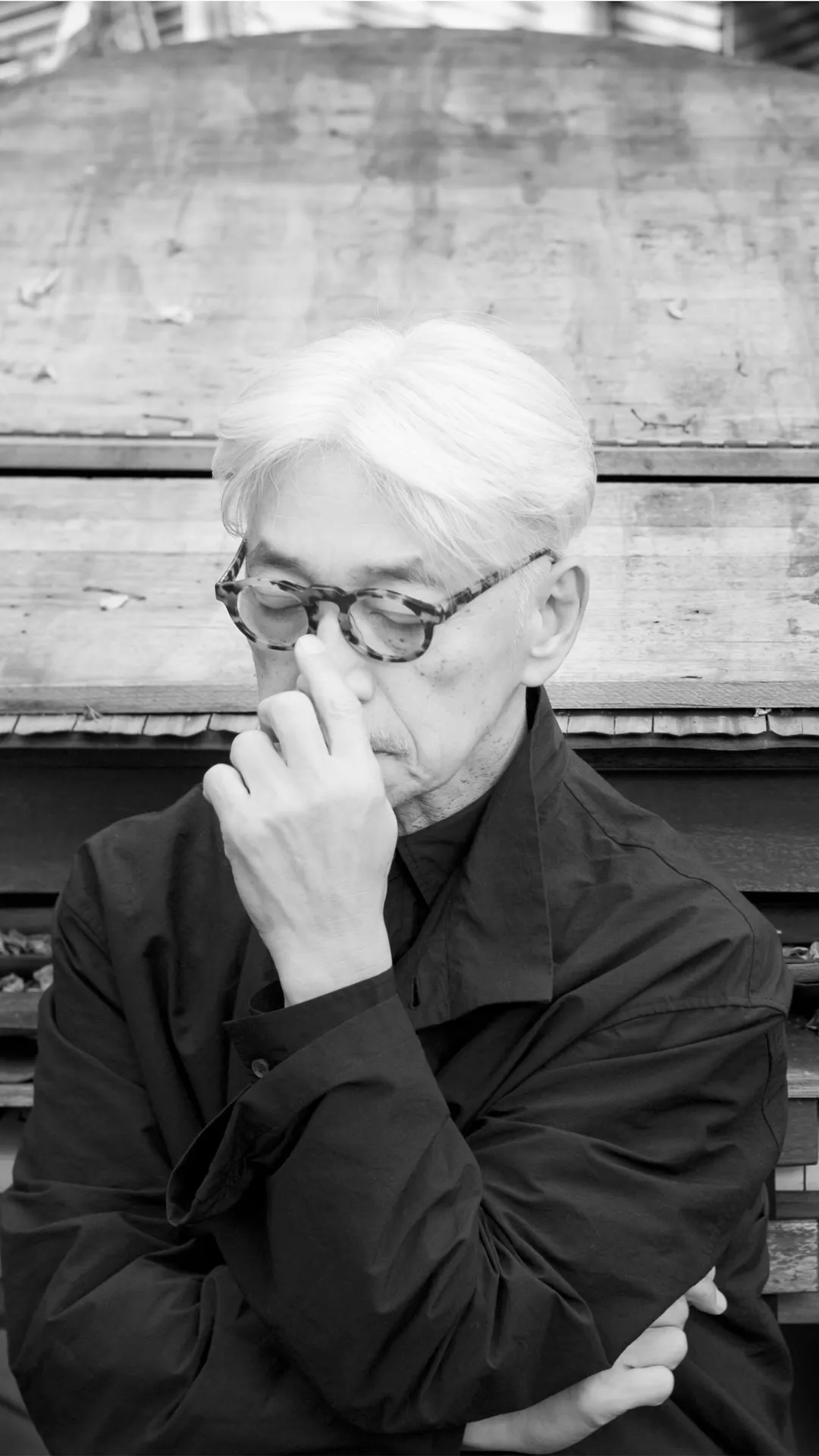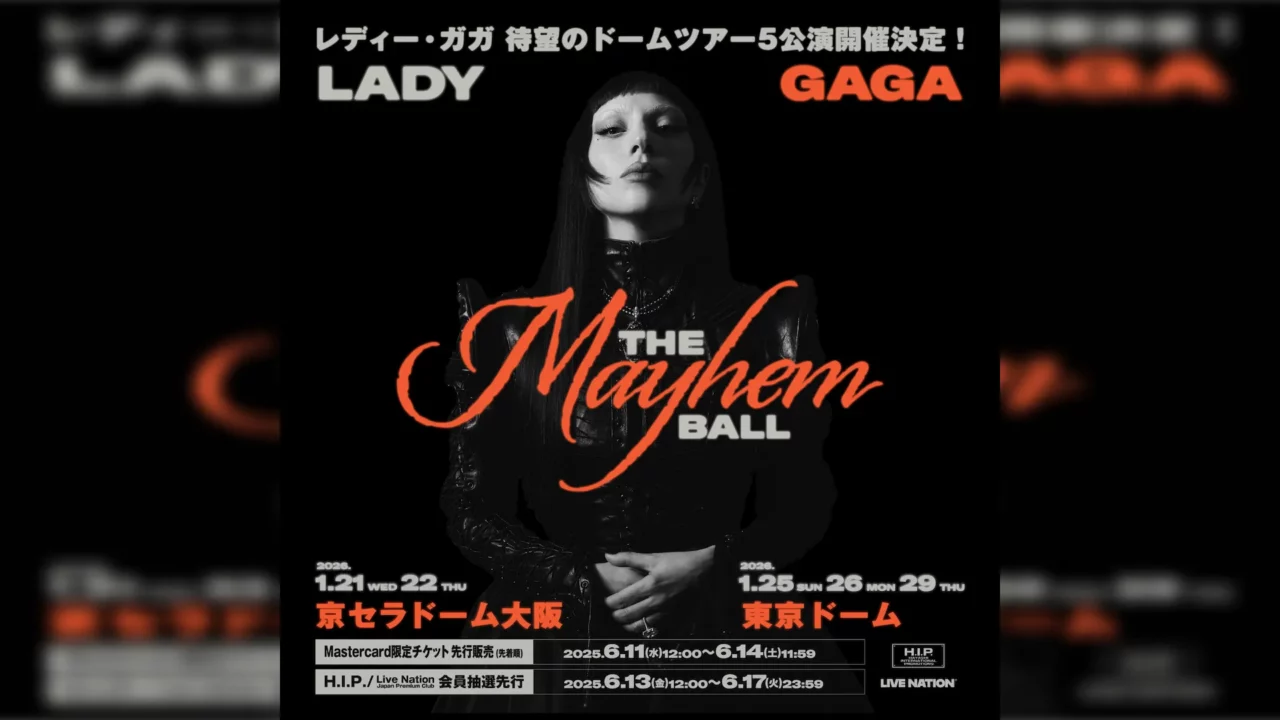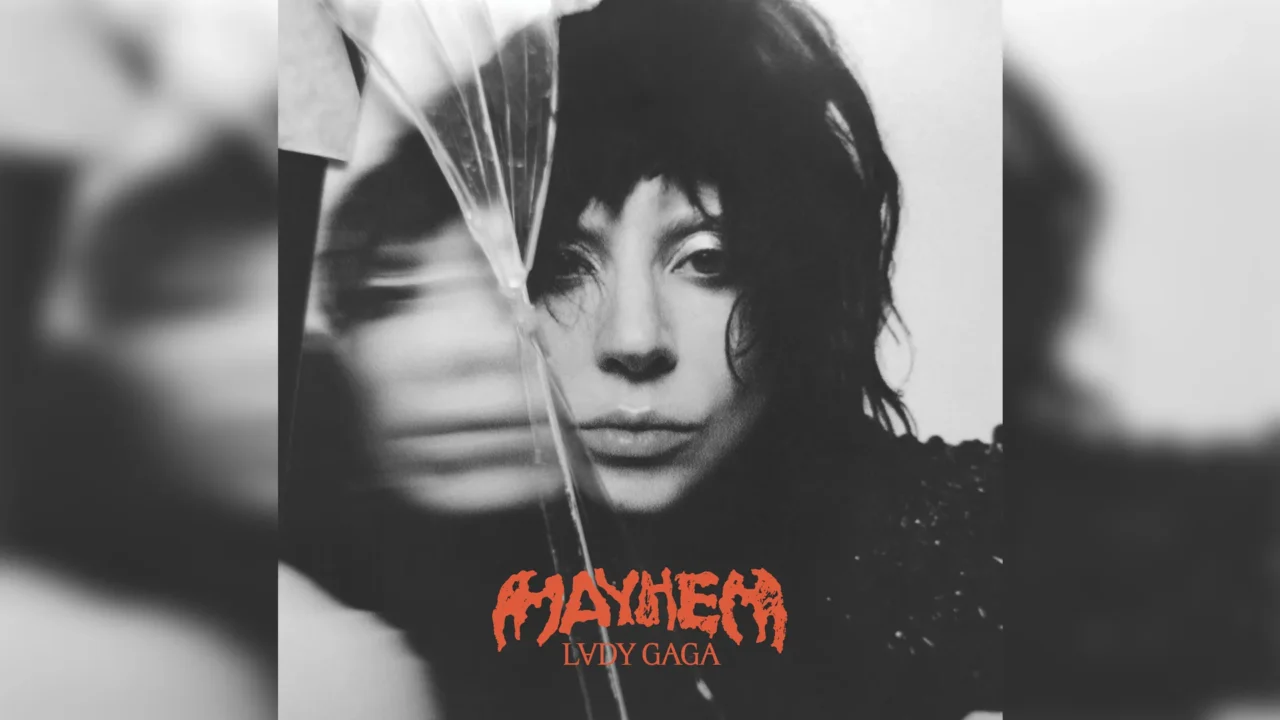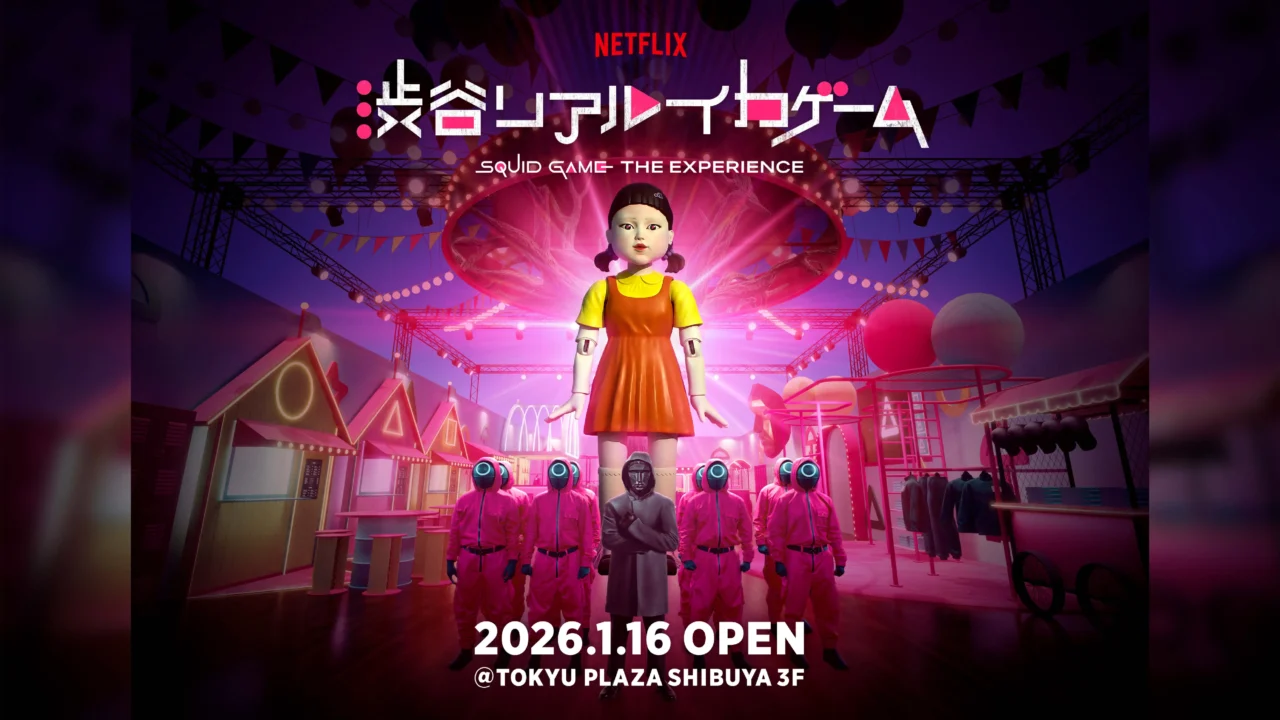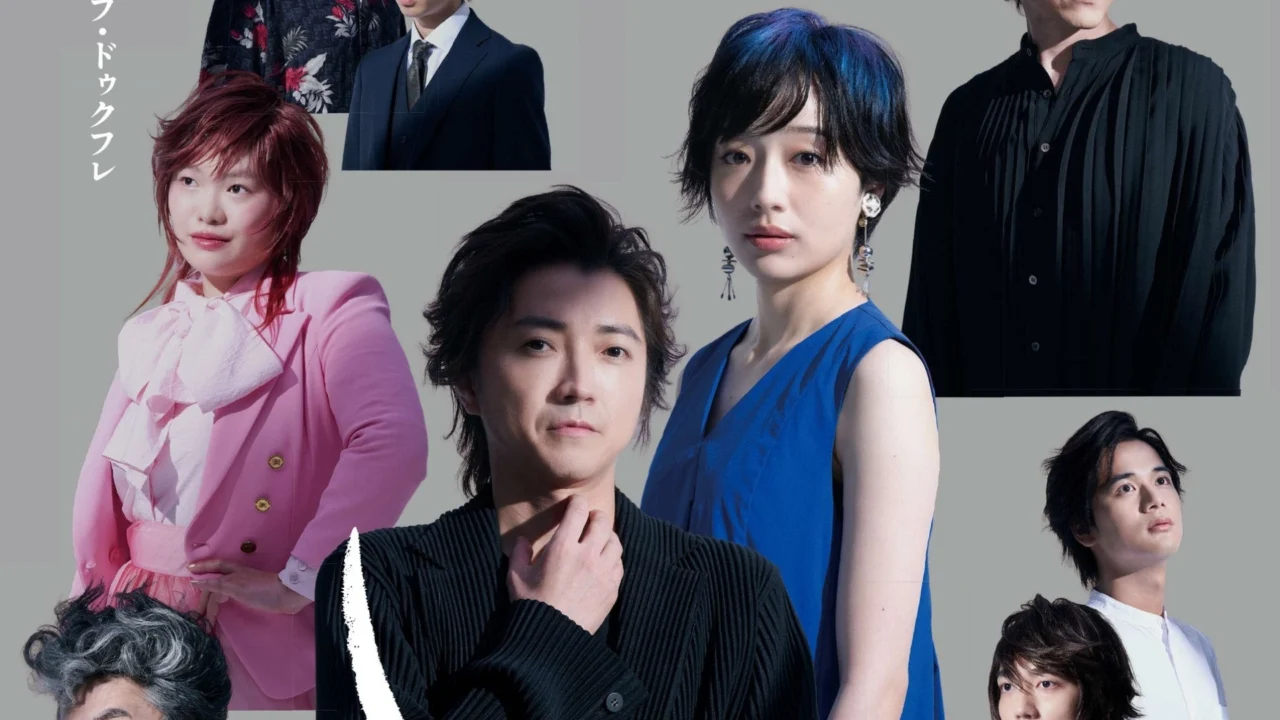Ryuichi Sakamoto is gone, and the months have quietly turned. Now his final three and a half years, preserved in his private journals, take shape in the film ”Ryuichi Sakamoto: Diaries”, opening Friday, November 28. The project expands on the NHK Special, a documentary by Japan’s public broadcaster that aired roughly a year after his passing. Directed by Kensho Omori, who also led the original broadcast, the film asks a piercing question: “How did he face the end of his life, and what did he hope to leave behind?”
INDEX
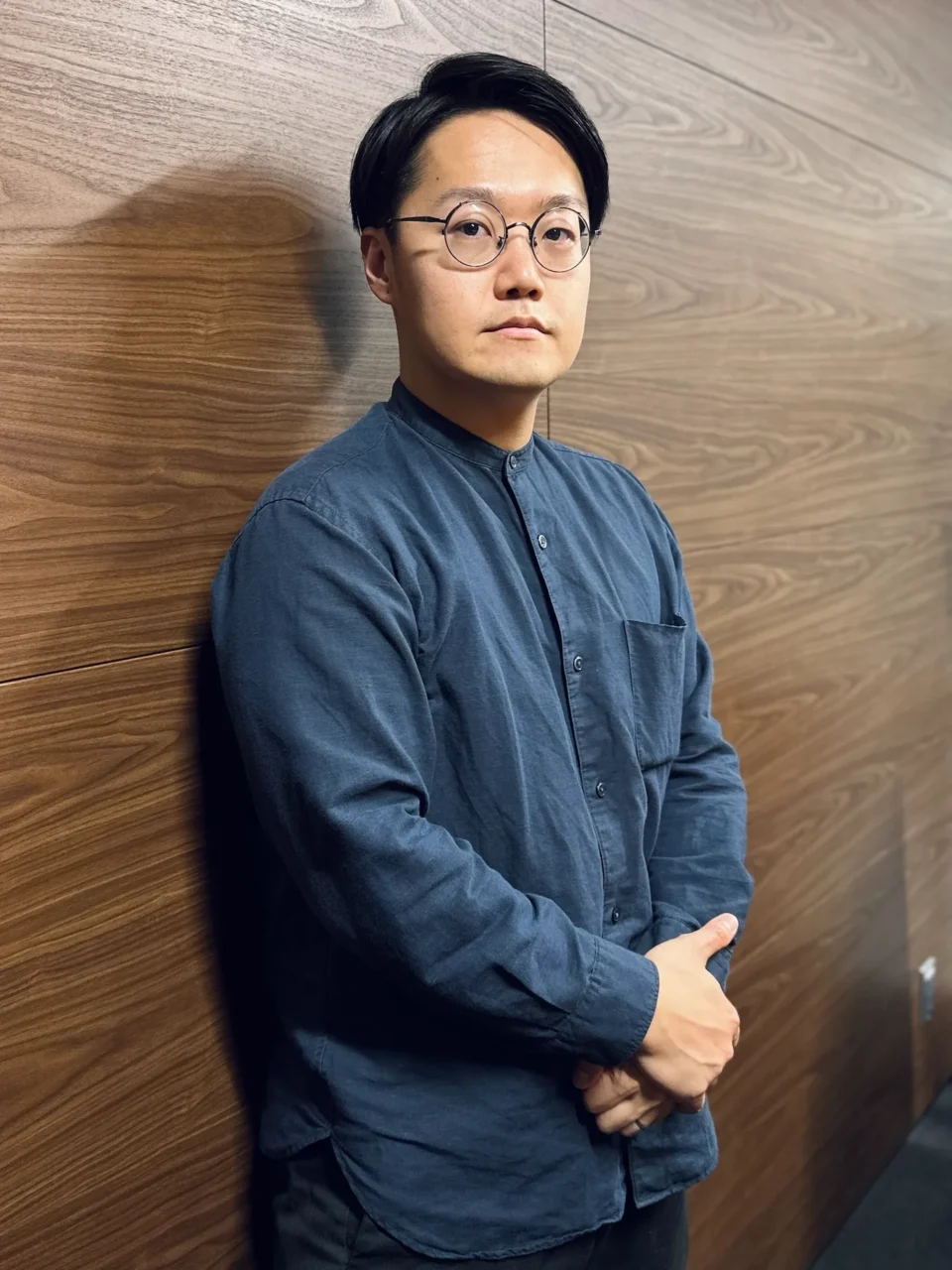
Kensho Omori was born in 1993 in Tokyo. He joined NHK in 2016 and works as a director in the News and Social Programs Department. He has produced documentaries for NHK Special and Close-Up Gendai, focusing on themes such as war, culture, and the arts. While actively engaged in news production, he also explores a visual style that balances documentary rigor with poetic sensibility.
Omori directed the NHK Special “Last Days Ryuichi Sakamoto” (2024), which earned numerous international awards, including the Rose d’Or (Best in Arts), the Special Award from the President of the Italian Republic, the Italian Award (Television and Performing Arts category), the International Emmy (Best Arts Program), and the Galaxy Encouragement Award. He has also worked on other NHK Specials, such as “Yukio Mishima: 50 Years Since His “Theory of Youth” (2020).
“Ryuichi Sakamoto: Diaries” is Omori’s feature film directorial debut, produced while he was at NHK Enterprises.
Turning Ryuichi Sakamoto’s Life and Private Journals into Cinema
The film presents both Ryuichi Sakamoto’s life and his private moments during his final years, including his journals. It inevitably has to touch on sensitive aspects, such as his illness, death, and the family and friends he left behind.
Omori: Yes. I approached the project using all the experience I’ve gained as a director, striving to remain objective while doing everything possible to avoid hurting anyone. Over the course of eight months, we had repeated conversations with Sakamoto’s family, and they generously provided private materials, including his journals, photographs, and notes saved on his smartphone.
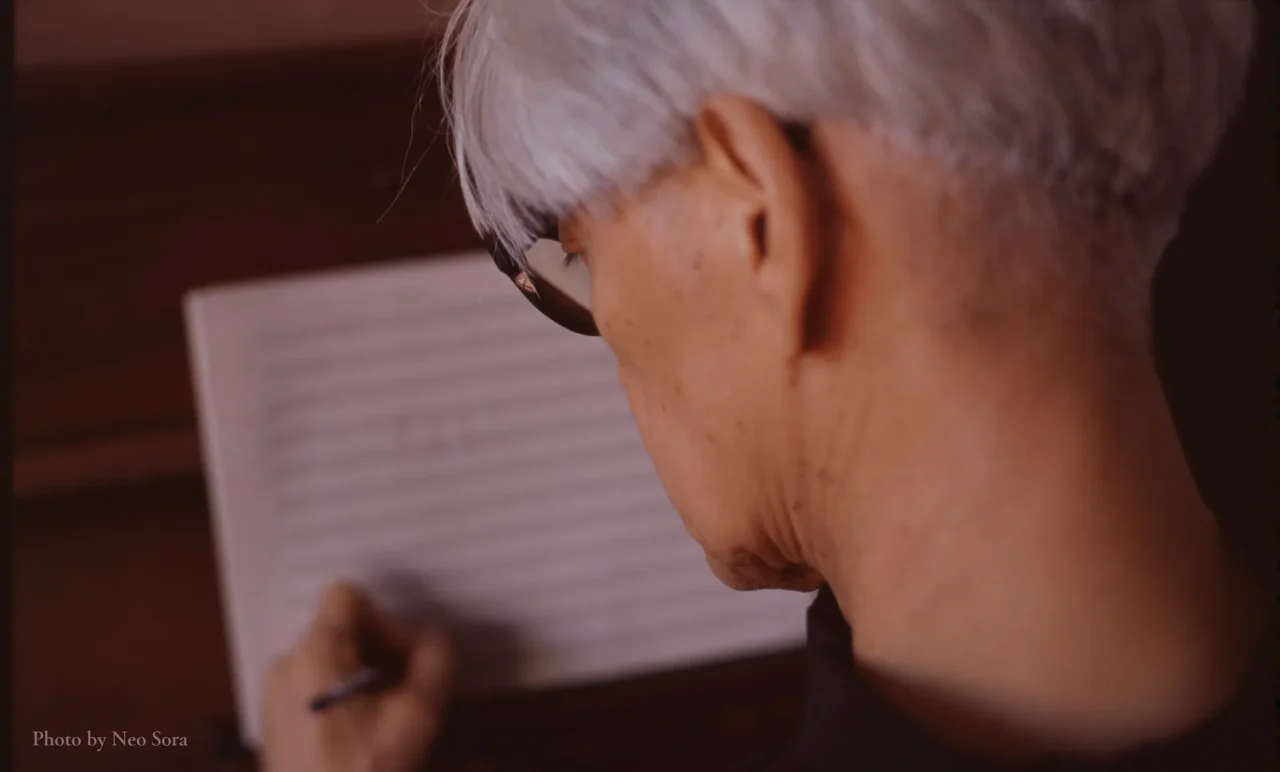
The NHK Special focused primarily on Sakamoto’s daily life in his final years, but the film seems to add a broader perspective on his entire life and musical career.
Omori: That’s right. Above all, he is someone who left behind music, so the film traces his journey as a musician as well. I wanted to understand his musical roots, so we borrowed old materials from his family — documents that weren’t available during the NHK Special.
It’s a well-known story among fans that, as a middle school student, he became obsessed with the French composer Claude Debussy and even thought of himself as Debussy reborn. Seeing his actual diary from that time was surprising—the signature reads “claude.”
Omori: He was only fifteen back then. Even in that diary, he analytically discusses Debussy’s piece “Nuages” and comments on harmonic progressions. It really shows how precocious he was.
In the NHK Special, “rain” appears as a recurring motif. In the film, we added symbolic elements such as “clouds,” representing his unfinished dreams, and “the moon,” symbolizing the boundary between life and death.
It’s incredible that diaries from so long ago were still preserved.
Omori: His family understood the importance of keeping them safe. Thanks to their careful preservation and the dedication of those around him, we were able to bring this film to life.
INDEX
Behind the Music: Quotes and Song Selection from the First and Final Concert Film
The film features performances of pieces like “Merry Christmas, Mr. Lawrence” and “The Sheltering Sky,” as well as tracks from the album “12.” How were these selections made?
Omori: Rather than consciously choosing specific pieces, we followed the timeline of Sakamoto’s journals, using the pieces he was performing or composing at the time. For “12,” the track titles correspond to the dates they were created, so the music naturally aligned with the chronology in the film.
As for why we selected “The Sheltering Sky” from the 20 tracks on “Ryuichi Sakamoto | Opus,” it’s partly because of the symbolism in the poem by Paul Bowles, the author of the original story behind the film. Visually, the piece works beautifully too — the camera moves in a sweeping, almost circling motion toward the end of the performance, creating a striking cinematic moment. Musically, I also feel it stands as one of the peaks of Sakamoto’s work.
Note: The poem reflects on the unpredictability of life and death, imagining life as a never-ending fountain yet counting only a limited number of full moons one might see. These lines appear in Bernardo Bertolucci’s film “The Sheltering Sky” (1990), were quoted by Sakamoto in the narration of “fullmoon” on his 2017 album ”async”, and inspired the title of his later memoir, “How Many More Full Moons Will I See?.” The same phrase is also quoted at the beginning of “Diaries.”
Omori: There was some debate among the staff about “The Sheltering Sky,” since it’s a relatively long piece. Some suggested a quieter track like “aqua” or a more well-known piece like “The Last Emperor” might work better.
In the end, choosing “The Sheltering Sky” gained the approval of Sakamoto’s family, and the selection felt truly necessary for the film. Personally, I also thought it was the best choice, so in that sense, my own judgment is reflected in it as well.
INDEX
Resonance Through Recitation: Ryuichi Sakamoto and Min Tanaka
How did the interactions go with Min Tanaka, who reads from the journals?
Omori: At first, we just went out for a meal. Tanaka also does some farming, so he talked at length about vegetables—things like the qualities of Fukaya leeks versus Kujo leeks. It wasn’t really a meeting or planning session, more like feeling out whether our energies matched.
During the narration recording, he paid close attention to every detail—whether to sit or stand, the pacing of the reading, the distance from the microphone. There was a moment when he was sitting and it didn’t feel quite right, but when he stood, his voice gained a centered, powerful resonance that really hit the mark.

Sakamoto’s handwritten reflections contemplate the nature of music — music that is left behind, music that endures, music that is not preserved, and music that simply fades away.
Omori: Min Tanaka and I are nearly fifty years apart in age, but whenever something didn’t feel quite right, I made sure to voice it. In those moments, both Tanaka and the other staff could sense it wasn’t working, and conversely, when it did work, there was a unanimous feeling of “this is it!” Recording under that kind of shared understanding was an incredibly valuable experience.
During production, did Tanaka ever speak personally about Sakamoto?
Omori: In our meetings, he did comment that “these are wonderful journals.” According to what he told me, when he spoke with Sakamoto in life, their conversations rarely touched small talk. Instead, they often tackled grand topics like humanity and war. The discussions were straightforward, without detours, and I think there was a resonance between them in terms of their ways of living and their characters.



